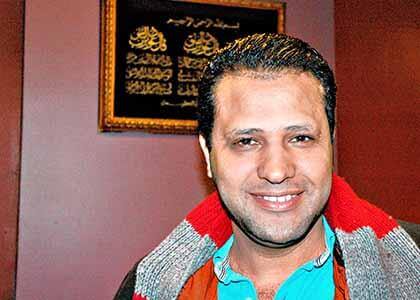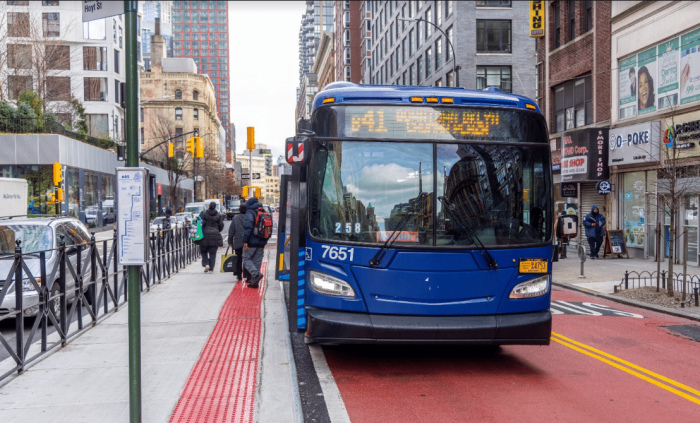By Joe Anuta and Rebecca Henely
Astoria’s Little Egypt on Steinway Street, ex-pats from Egypt sat in hookah bars, glued to television screens broadcasting the news in Arabic and watching the anti-government protests that were raging in Egyptian cities Tuesday.
Opinions varied widely on the unrest that has gripped the country for a week, causing Egyptian President Mubarak to announce he would not seek re-election this year after firing his cabinet and designating the country’s first vice president in three decades.
“This is an accumulation of 30 years of corruption, poverty and frustration,” said Astoria resident Mohamed Hussein, who was born in a rural Egyptian town far removed from the turbulent cities of Alexandria and Cairo. “People obviously got sick of it.”
The Egyptian uprising erupted in the wake of the Jasmine Revolution in Tunisia, which began in December after a college-educated street vendor burned himself to death in protest of the lack of opportunity. Protests gripped the North African nation and led to the ouster of 23-year President Zine el-Abidine Ben Ali from the Arab state.
Astoria resident Nizar Sassi, 35, who is from Tunisia, said the Jasmine Revolution has motivated similar protests across the Middle East.
“They share the same problems. They share the same past. They’re in the same situation,” he said.
Many Egyptians in Queens hope for a similar outcome: the end of the Mubarak regime, which is the United States’ closest ally in the Arab world. Hussein said Mubarak crushed civil liberties for citizens and allowed corruption to run rampant.
“Egypt is full of corruption,” Hussein said. “The middle class has disappeared.”
And, according to Hussein, there are many educated poor who are frustrated.
“A student who graduated with a bachelor’s degree cannot find work,” he said. “They are forced to move home, jobless and rely on their parents for money.”
But others in the neighborhood had mixed feelings about Mubarak, like former Cairo resident Maged Mohamed.
“He has protected the people from war for the last 30 years,” Mohamed said. “He is not like Saddam Hussein of Iraq or the shah of Iran. The election will come in 2011. Democracy has to come step by step.”
But Mohamed said he still supported change as long as it was peaceful and free of looting — which has put a blemish on the relatively non-violent protestsin which about 75 people have died.
“I’m with the protest, but not like this,” he said. “This is not how Egyptians act.”
But other Egyptians were skeptical of the unrest, calling it a political stunt by the opposition party, the Muslim Brotherhood, which runs on a political platform influenced by the laws of Islam.
“I support the police,” said Amr Mahmout, formerly of Cairo, who sat inside El Khayam Cafe puffing on a hookah pipe.
“I don’t like the Muslim Brotherhood,” he said. “They want to make Egypt like Iran.”
Mahmout feared that if the brotherhood swept into power, the country would lose its secular government.
Regardless of how they felt about this turning point in their country’s history, Little Egypt was collectively shocked when they turned on the news Jan. 25 when the protests began.
“I was surprised,” said Hussein. “I never had the idea that Egypt would do something like this.”
Hussein’s extended family was safe in a rural town, far from the demonstrations, but Mohamed, the man with mixed feelings about Mubarak, did not share his peace of mind.
“My sister is in Cairo,” he said. “I was so worried, but I called her and found out she is OK.”
Mahmout was not the slightest bit worried about his family in Cairo, since he believed the protests were staged by the Muslim Brotherhood.
But the idea of orchestrating a protest by hundreds of thousands of people seemed absurd to Hussein.
“They don’t have the power to get this many people out in the street,” he said. “People in Egypt know that the Muslim Brotherhood is only looking for power.”When the dust finally settles in Cairo, Hussein hopes that Mubarak’s pledge not to run for re-election will usher in a new era of fair elections and democracy for Egypt.
“I would love to see an elected president,” he said. “And fair elections for members of the People’s Assembly.”
Meanwhile, Tunisia has been working to rebuild, and Sassi said his family in the country is fine.
Sassi said the Tunisian revolution may have been started by self-immolation, but it has its roots back in 1956, when the country’s first president, Habib Bourguiba, instituted education, health care and women’s rights in the country. He said the society of Tunisia is young and knowledgeable and was thus resistant to the president and the “mafia-like” police who protected him while giving the Tunisians less and less freedom.
“They’re educated,” Sassi said. “They’re not stupid.”
He said for Tunisia’s future he hopes for a government not of politicians but technocrats who can make sure the country is running properly before they can hold elections overseen by independent judges loyal to the country’s constitution, not the president, and create an Arab democracy.
“That’s our goal,” Sassi said. “We’re going to be the first.”
Reach reporter Joe Anuta by e-mail at januta@cnglocal.com or by phone at 718-260-4566.































